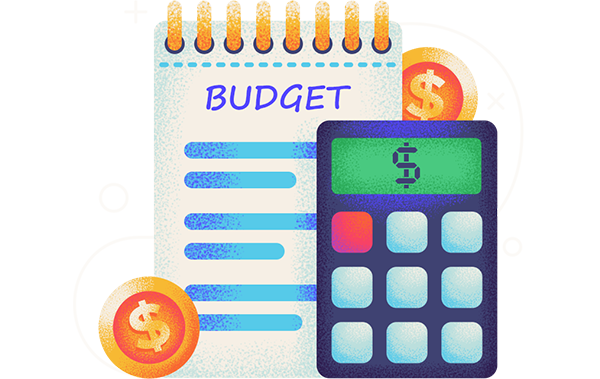While the economy has been displaying begrudging improvement of late, there is still reason for concern at the household level – primarily when it comes to spending and debt. The average household owes more than $7,000 to their credit card company, according to CardHub research, and outstanding student loan balances total well over $1 trillion. What’s more, after displaying year-over-year improvement in credit card spending and payment habits –indicative of overall reliance on debt – in six out of the previous seven quarters, U.S. consumers added 8% more to their tab in Q4 2013 than they did in fourth quarter of 2012.
The question is: How are we going to turn things around? We need to learn our Great Recession lessons about the dangers of habitual overleveraging and the importance of making sensible money-management decisions with an eye to the future. Widespread overspending helped intensify the downtown, and pre-recession spending levels are even less sustainable without the support of the housing bubble. That means the three in five Americans who don’t maintain a budget need to change their ways and we all need to take a long, hard look at what we consider to be “necessities.”
WalletHub recently caught up with University of Arizona personal finance professor, Dr. Richard H. Serlin in search of some helpful spending and saving tips as well as other general words of wisdom. Check out our Q&A with him below!
Where are the biggest opportunities for improvement in the average household's balance sheet?
“The most important thing is to attack the big fixed costs, what eminent Harvard personal finance expert Elizabeth Warren calls ‘Must-Haves.’
The biggest must-have is housing, and this is the biggest reason people get into trouble in personal finance, at least on the spending side. It's very important not to overspend on your home. This is just crucial.
A home you live in is actually a horrible investment. The average historical return is only about a quarter of one percent above inflation. And when you add in the very considerable expenses of maintenance, modernization, furnishing, insurance, utilities, and property taxes, the average real return is quite negative. That is, it's substantially less than the inflation rate.
So, a home really is more of an expense than an investment. A well-diversified stock fund, on average, pays far more, about 7% above the inflation rate, versus below the inflation rate after expenses for a home. And since a home really is an expense – the largest one – you want to really be careful to keep how much you spend on it reasonable. This can make you a lot more financially secure, and lower stress.”
What are the best ways for families to implement and achieve savings goals?
“The two biggest things are to keep your Must-Haves (see question 1) to under 50% of your after-tax pay, and to get, or keep, your educational and other employment skills up.
If your Must-Haves, your monthly fixed expenses, are under 50% of after-tax pay, then saving can pretty much go on auto-pilot. For example, half your money goes to Must-Have necessities. You can then immediately put 20% into savings. And the remaining 30% is for discretionary spending, what Harvard professor Elizabeth Warren calls "Wants". When you run out of money for wants, you stop; they are discretionary, not necessities.
Now, this can be hard with the credit card sitting right there. But the big thing is that if you go to used cars, a less big and fancy house, you don't have to have granite and wood everything, and so on, then your monthly payments are so much lower (as is your stress). You just have so much breathing room. You can maybe eat out too much, or buy the dress, but still save a lot even with this occasional over-doing.”
Can we expect any significant pro-consumer reform initiatives in 2014?
“Specific to this year, a big thing is that we may see a lot more consumer financial protection. Generally, the Democrats are far more pro- consumer financial protection and regulation than the Republicans. So it's a big political battle to see if the Democrats can enact anything. At least since the Republicans won the House, they've stopped everything.
In addition to House control, Republicans also won enough seats in the Senate to be able to filibuster. And they have used the filibuster far beyond how it was ever used. Historically, it was extremely rare. Now, it's common for legislation, but a huge thing is that the Republicans were filibustering appointments simply because they did not want Obama to implement any policy, rather than the historical reason of questioning the qualifications of the nominee.
For example, the new Consumer Financial Protection Bureau largely could not function because the Republicans would filibuster any nominee to head it, no matter what her qualifications. And having a head was legally required to exercise most of the agency's power.
This came to a head recently when the Democrats employed the so-called nuclear option, where they changed the Senate rules to restrict filibusters. Now, the Consumer Financial Protection Bureau finally has a head and can fully operate. In addition, the Democrats were finally able to appoint judges to the crucial Washington District Court of Appeals, to take a majority on that court, so Republicans cannot strike down much or all of any regulatory changes.
The end result is that we could see big new things from agency regulations this year to restrict harmful or predatory practices in everything from mortgages to payday loans.”



WalletHub experts are widely quoted. Contact our media team to schedule an interview.